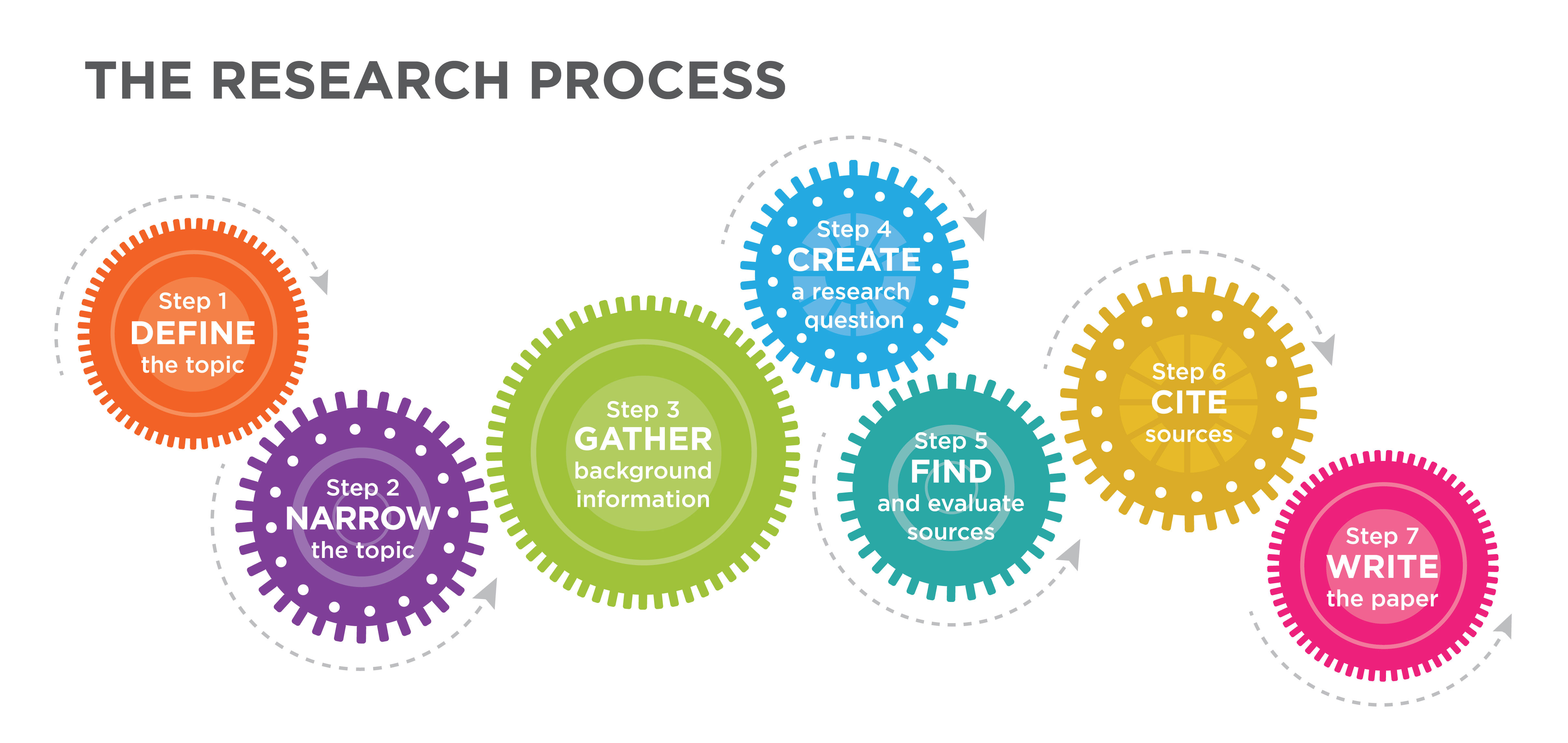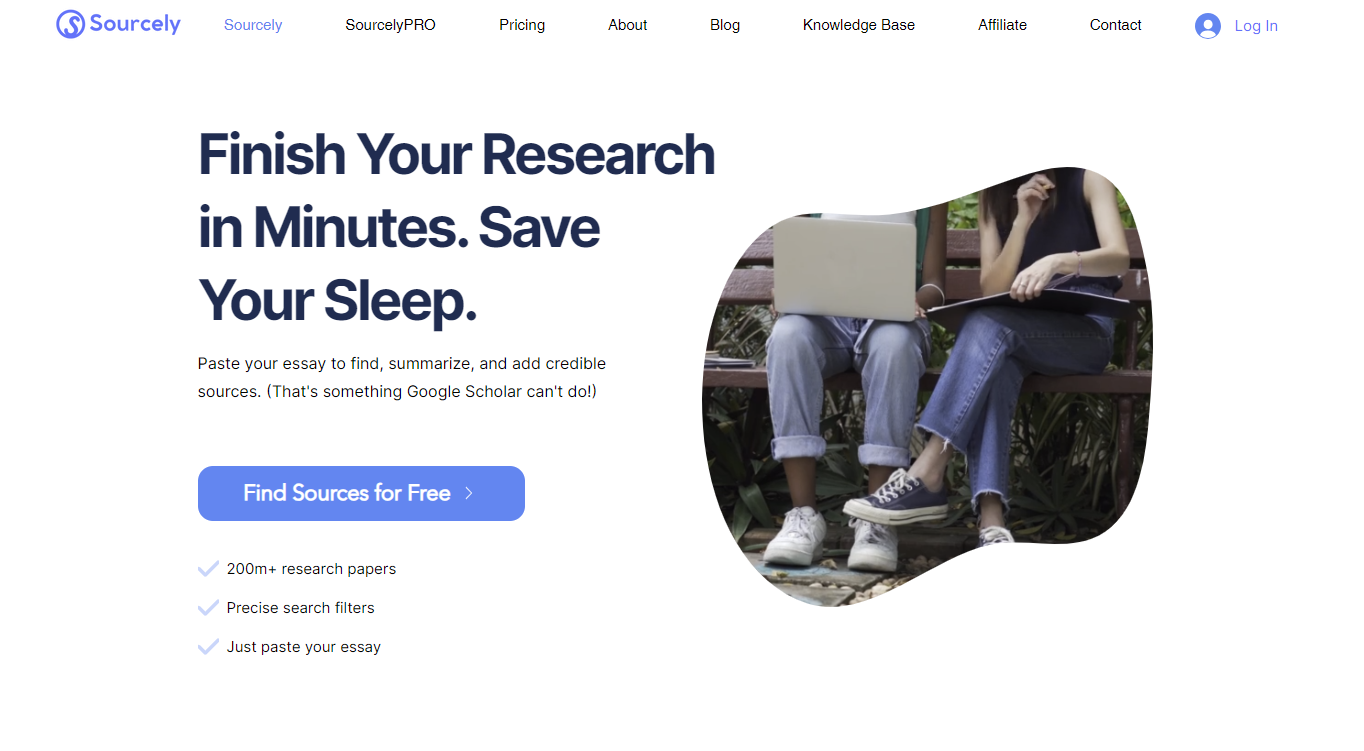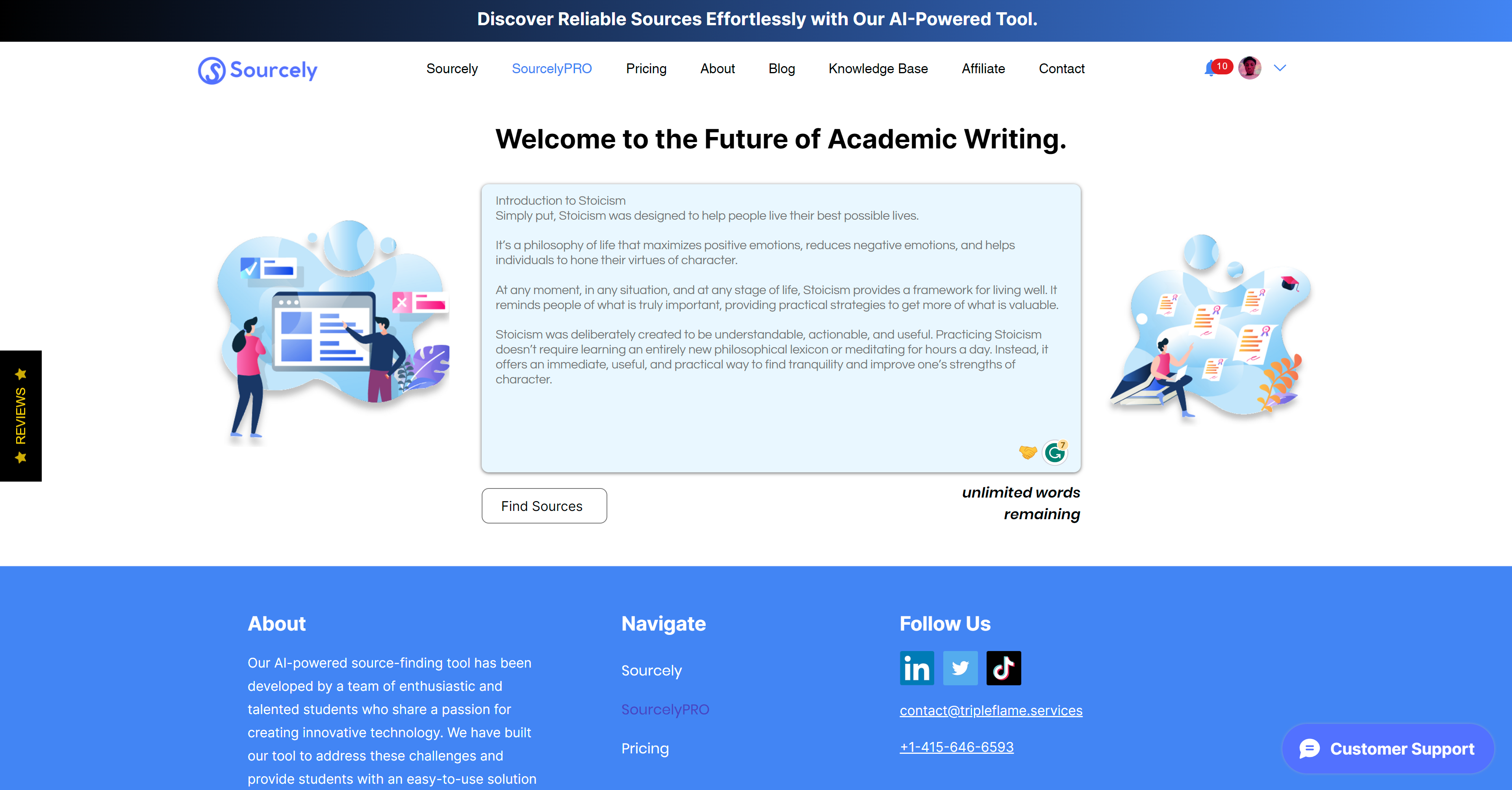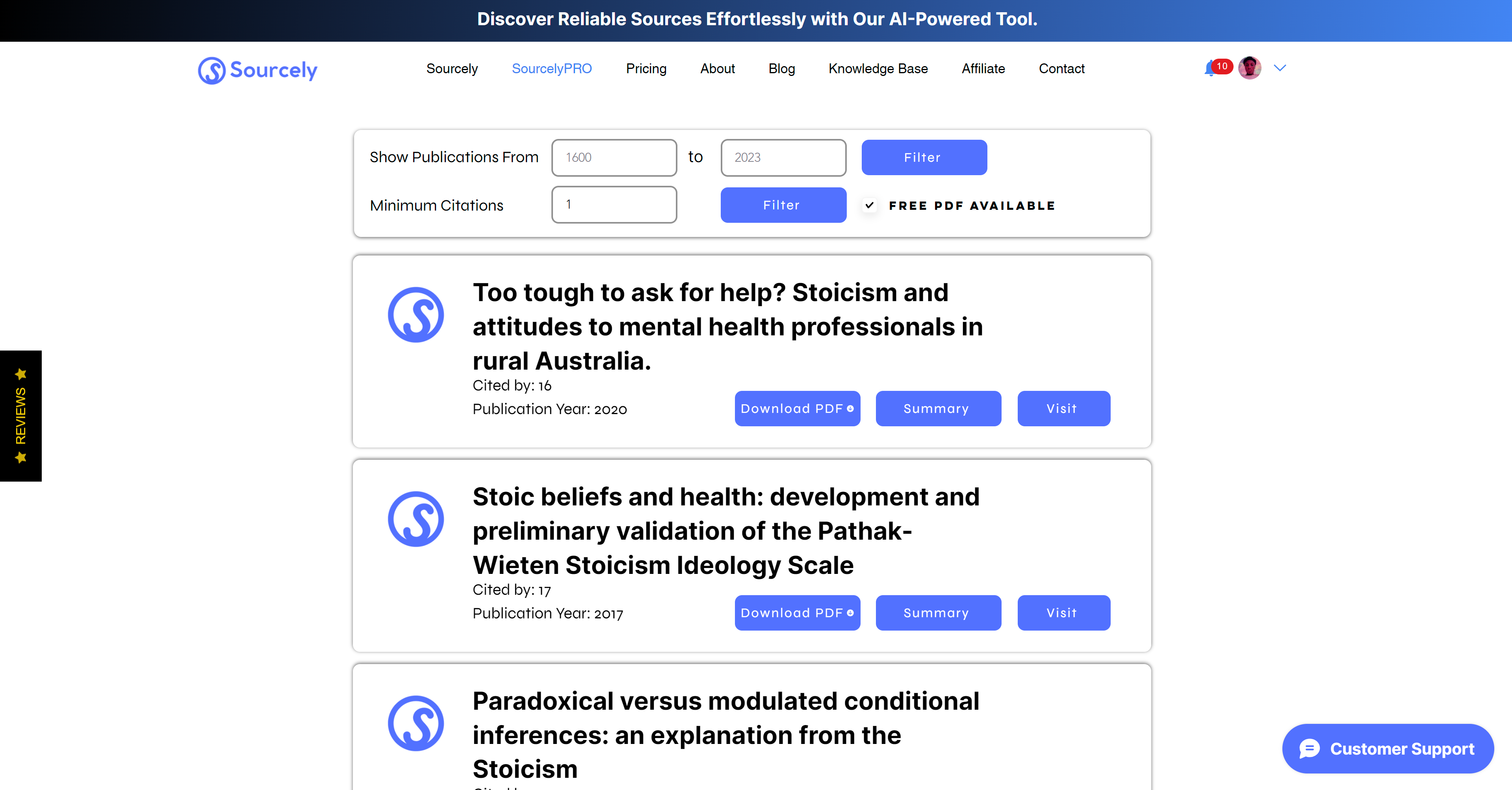Academic research is like the backbone of progress in all academic areas. It's where students and scholars can dive into new territories, come up with cool ideas, and make a real impact in their fields. It's not just about collecting data - it's about carefully looking at what's already out there and finding fresh new angles.
 Even though academic research has a lot of great perks, one big hurdle for researchers is finding the right materials. There's so much info out there on the internet and in libraries that it can be super overwhelming and confusing. This leaves researchers not knowing where to even start their search.
Even though academic research has a lot of great perks, one big hurdle for researchers is finding the right materials. There's so much info out there on the internet and in libraries that it can be super overwhelming and confusing. This leaves researchers not knowing where to even start their search.
When researchers have a ton of resources to work with, they might feel a bit overwhelmed about where to start looking. This can make them unsure and indecisive. So, it's super important for them to carefully choose and pick the right materials for their academic research. They need to plan strategically and think things through to make sure they're using the best and most trustworthy sources. By getting good at finding materials and improving their research skills, researchers can tackle this challenge and make their academic studies even better.
This article will provide you with some tips on how to find the right sources for your academic research. We'll chat about figuring out your research topic, making the most of search engines, and checking if your sources are top-notch.
Step 1: Pick Your Research Topic!
 So, when you start your research journey, the first thing to do is pick a topic that grabs your attention and fits your goals. It might sound easy, but the trick is to be super specific with your choice. Instead of going for something broad like "artificial intelligence," why not explore "how artificial intelligence is used in healthcare." By narrowing down your focus, you set the stage for a deeper dive and analysis.
So, when you start your research journey, the first thing to do is pick a topic that grabs your attention and fits your goals. It might sound easy, but the trick is to be super specific with your choice. Instead of going for something broad like "artificial intelligence," why not explore "how artificial intelligence is used in healthcare." By narrowing down your focus, you set the stage for a deeper dive and analysis.
Once you've got your research topic nailed down, the next big step is to brainstorm some keywords and phrases that are on point. These will be like your trusty compass guiding you to all the good stuff out there. Putting together a solid list of keywords makes sure your searches are right on target, saving you time and getting you to the heart of the matter. So, let's get exploring armed with these essential tools and uncover all the cool stuff waiting to be found!
Step 2: Getting the Most out of Search Engines
 So, when you want to utilize those search engines, you've got tons of choices. Sure, Google, Bing, and Yahoo! are big shots, but there are plenty more out there that cater to all sorts of needs and tastes.
So, when you want to utilize those search engines, you've got tons of choices. Sure, Google, Bing, and Yahoo! are big shots, but there are plenty more out there that cater to all sorts of needs and tastes.
A big part of making the most of search engines is picking the right keywords and phrases. Choose those terms wisely, and you'll get search results that really match what you're looking for. This focused approach not only saves time but also helps you find the best sources for your research or info needs.
And hey, if you want to get super precise with your searches, try using some fancy search tricks. These cool commands let you tweak your searches and ditch all the stuff you don't need. For example, throw in the "site:edu" trick, and you'll only search educational sites, which are usually top-notch for reliable info.
By getting the hang of using search engines like a pro, you'll speed up your online research, uncover awesome resources, and nail down the info you're after with way more efficiency and accuracy. Go you!
Step 3: Checking Out the Quality of Sources
 So, when you start digging into research, the quality of the sources you use is super important for making sure your work is legit and reliable. Figuring out if a source is top-notch involves a few key things to think about:
So, when you start digging into research, the quality of the sources you use is super important for making sure your work is legit and reliable. Figuring out if a source is top-notch involves a few key things to think about:
-
Expertise: First off, you need to look at who wrote it. A good source should be written by someone who really knows their stuff in that field, so you know you're getting solid info.
-
Relevance: It's crucial that the source you're using relates closely to what you're researching. This way, you can pull out the most important insights and data for your work.
-
Accuracy: The info in your source has to be spot on. Not only should it be correct, but it also needs to be up-to-date, showing the latest info and discoveries in the field.
-
Objectivity: A trustworthy source needs to be fair and impartial. To keep things legit, sources should present info without any personal biases or hidden agendas.
If you're not sure about how good a source is, don't sweat it! Getting advice from a librarian or academic advisor can be a big help in navigating the sea of info out there for researchers.
.
4. Step 4: Use Sourcely AI
 When it comes to academic writing, we all know how much of a pain it can be to hunt down and organize all those sources for your papers. That's where Sourcely AI comes to the rescue. Sourcely is like your trusty sidekick that uses artificial intelligence to make finding, summarizing, and formatting your sources a breeze.
When it comes to academic writing, we all know how much of a pain it can be to hunt down and organize all those sources for your papers. That's where Sourcely AI comes to the rescue. Sourcely is like your trusty sidekick that uses artificial intelligence to make finding, summarizing, and formatting your sources a breeze.
With Sourcely AI, say goodbye to endless hours of searching the web for scholarly articles and books related to your research topic. This nifty tool can automatically dig up sources that are spot-on for your field of study, saving you loads of time and hassle.
But wait, there's more! Sourcely can also whip up neat summaries of the articles and books it finds, making it super easy for you to grasp the main points and arguments in each source. This feature is a lifesaver when you're dealing with a mountain of references and need to quickly pull out the key info.
And guess what? Sourcely AI even takes care of formatting your sources according to different citation styles. Whether it's APA, MLA, or Chicago style, Sourcely has got your back when it comes to making sure your citations are consistent and accurate.
By bringing Sourcely AI into your academic routine, you can supercharge the efficiency and quality of your research game. This means more time for digging into and connecting the dots between information, and less time sweating the small stuff of source management.
How to use Sourcely to find relevant sources for academic research
 To use Sourcely, simply copy-paste your research topic or material into the textbox. Sourcely will then scan for relevant sources and present them to you in a matter of seconds. You can then select the sources that you want to use, and Sourcely will summarize and format them for you.
To use Sourcely, simply copy-paste your research topic or material into the textbox. Sourcely will then scan for relevant sources and present them to you in a matter of seconds. You can then select the sources that you want to use, and Sourcely will summarize and format them for you.
 Sourcely is a great way to save time and improve your research skills. It is also a great way to ensure that you are using high-quality sources in your research papers.
Sourcely is a great way to save time and improve your research skills. It is also a great way to ensure that you are using high-quality sources in your research papers.
Here are some of the benefits of using Sourcely:
-
Save time: Sourcely can save you a lot of time by automating the research process.
-
Improve your research skills: Sourcely can help you to improve your research skills by teaching you how to find, summarize, and format sources.
-
Use high-quality sources: Sourcely only uses high-quality sources, so you can be sure that the information you are using is accurate and up-to-date.
If you are looking for a way to find relevant sources for your academic research, I recommend checking out Sourcely. It is a valuable tool that can help you to save time and improve your research skills.
Conclusion
Finding relevant sources for academic research can be a challenge, but it is an essential part of the research process. By following the tips in this article, you can find relevant sources that will help you to write a well-informed and persuasive research paper.
Here are some additional tips for finding relevant sources for academic research:
-
Use your library's online catalog. Your library's online catalog will list all of the books, journals, and other materials that are available in your library. This can be a great way to find sources that are relevant to your research topic.
-
Use specialized databases. There are many specialized databases that are available for academic research. These databases can contain articles, books, and other materials that are not available in your library's online catalog.
-
Use Sourcely AI tool. Sourcely can save you a lot of time by automating the research process. Simply copy-paste your research topic or material into the textbox, and Sourcely will scan for relevant sources and present them to you in a matter of seconds.
-
Talk to your professors and classmates. Your professors and classmates can be a great resource for finding relevant sources. They may be able to recommend specific sources or point you in the right direction.
